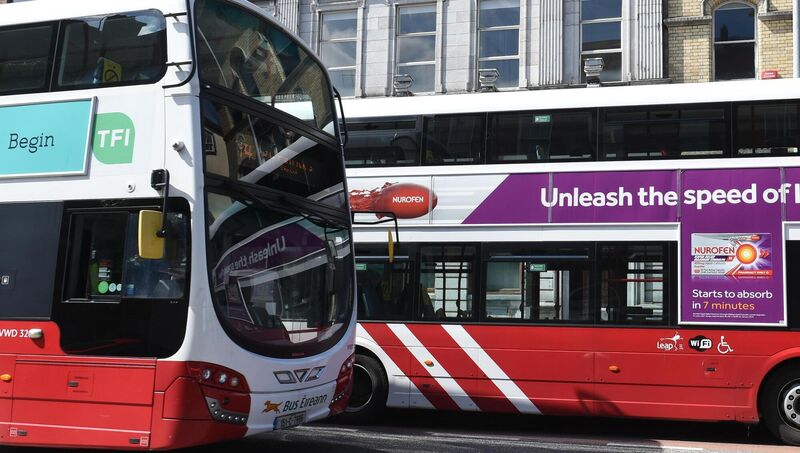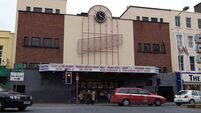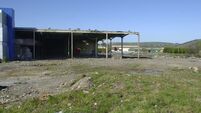Michael Moynihan: Stranded at the bus stop — why Cork’s transport crisis is more than just an inconvenience

Unreliable bus services lead to increased car use and even more traffic, which combine as a disincentive against visiting the city centre, resulting in an even more neglected inner city which fewer people want to visit.
Sunday evening, feet up, on the box — Gene Hackman never better, God rest him - when the phone rings.
One of the research assistants, plus pal, waiting for a bus at Mahon Point. The bus was due, honest to God, but now it’s vanished like it never existed: a lift?
Gene is frozen solid as he chases the Frog around Manhattan. Duty calls here too.
Then another message from M Point. A bus, unheralded, unannounced, unanticipated, has arrived. Problem solved.
Back to Cloudy and Popeye, but the exchange sets your columnist to thinking about the bus service in Cork — or, to be more precise, what that service means for people’s safety.
You consult the Transport for Ireland website and there’s some boilerplate about transport safety (“When waiting for a bus, always remember to maintain a safe distance from the edge of the curb to avoid being struck by traffic,”) but that’s not quite what I mean. It’s always good to remind people not to get hit by passing cars when trying to get on a bus, mind, because there are certainly people who have not absorbed that lesson.
Last December there was a concerted effort by gardaí in Dublin to reduce antisocial behaviour and crime on buses there, and bus services in Cork are sometimes halted for the same reason. That’s not what I mean either, because if you’re experiencing that kind of behaviour then by definition you are already on a bus. Granted, if it happens while you’re on board you may be having second thoughts about your choices, but there’s the crucial difference: you’re already a passenger. You are no longer waiting at the bus stop.
What I have in mind relates more closely to a piece Eoin English published in these pages last December which stated: “Despite a published schedule which shows buses should run every 20 minutes, the 214 cross-city service which links Glanmire to Cork University Hospital (CUH), via Kent train station, is amongst one of the worst performing routes, running late 40% of the time.
“Statistics from the National Transport Authority (NTA) show that only a quarter of the city’s bus services meet minimum performance standards. With frustrated passengers often left stranded at bus stops by ‘ghost buses’ and cancellations ...”
Eoin’s piece itemised the poor punctuality, but the reference to passengers “often left stranded by ‘ghost buses’ and cancellations” is the significant one for me. What are the implications for those passengers’ safety when they’re often left stranded?
The clocks went forward recently enough but we’re not far removed from the long dark nights of winter: on those evenings the last thing someone wants on a rainy evening is the gnawing realisation that the bus isn’t going to come.
If you’re built like Gene Hackman that’s just an inconvenience. A chance to stretch the legs, maybe listen to your podcast on the walk home.
I pick those demographics deliberately, because if you get the bus with any regularity those are two significant cohorts among the passengers. And for them being left on their own at a bus stop at night is considerably more than an inconvenience. Surely our teens and elderly alike should be able to journey in — and out — of town in safety?
(If anyone feels I’m being sexist or ageist — there are certainly bus stops in Cork where I wouldn’t like to be stranded alone late at night.)
I’m not overstating my research assistant’s travails last Sunday, by the way. The stretch in the evenings means that it’s brighter later. Mahon Point and associated bus stops are busy, with plenty of people around. She and her pal weren’t waiting outside Jeffrey Dahmer’s house at 1am.
The bus service in Cork doesn’t exist in a vacuum. I accept that. There are problems with staffing levels, with attracting bus drivers and mechanics. The ongoing traffic chaos in the city militates against a dependable bus service, as does the crumbling infrastructure. Bus Connects is — what? — a riddle wrapped in a mystery inside an enigma, or any variation thereof.
All of those factors combine and militate against the reliability of the buses, which brings us into a doom loop — increased car use and even more traffic, which combine as a disincentive against visiting the city centre, resulting in an even more neglected inner city which fewer people want to visit.
And which fewer people want to visit by bus.

On paper the bus is the ideal way to travel to Cork city centre. No need for a car and, a welcome respite from the rain when that hits.
The unreliability has to have an impact on bus use, however. No-one wants to try waiting for a bus that will never arrive, and there are plenty of those disappearances and cancellations to judge by information from the National Transport Authority (NTA) released a couple of weeks back.
That organisation’s figures suggest almost 800 Cork city buses were cancelled during just five days in October: 543 of these were because of “abnormal traffic congestion”, 101 due to blocked roads or roadworks, 96 down to staff absence, lateness, or sickness, 14 to a bus breakdowns, 11 to driver shortages, five because of accidents or medical emergencies, five for a service interruption or exclusion request, while three were cancelled because there were no serviceable buses.
That’s bad news for everyone, but particularly those who rely on the bus for specific reasons.
In 2023, for instance, Dublin TD Louise O’Reilly reported that some of her constituents were on a final written warning from their employers because of repeated lateness; the real reason they weren’t making it to work on time was the unreliable bus service. Does anyone think Cork is any different?
That issue haunts a story which surfaced in Cork in October 2023. I wrote then about the student protests about parking at Munster Technological University (MTU) — parking which was needed because students could not rely on the bus to get them to college on time for classes.
Those are the economic and educational elements, and clearly they’re significant. If people can’t trust public transport systems to get them to work and college that’s a significant drawback for the country as a whole, an impediment to growth that has to be addressed (by dealing with the housing crisis, but that’s another day’s work).
The safety element is less cut and dried, and clearly more difficult to measure. But some of the near-800 cancellations mentioned above for a week in last October surely occurred late in the evening.
In fact, the bland term ‘cancellation’ hardly does justice to the sinking realisation you’ve been stranded, and the sense of nervousness at being left on your own late at night, far from home.










